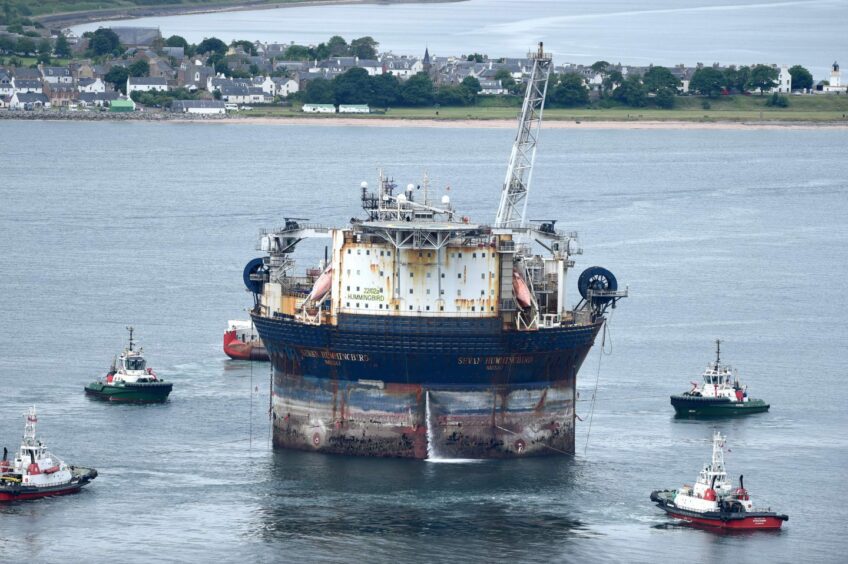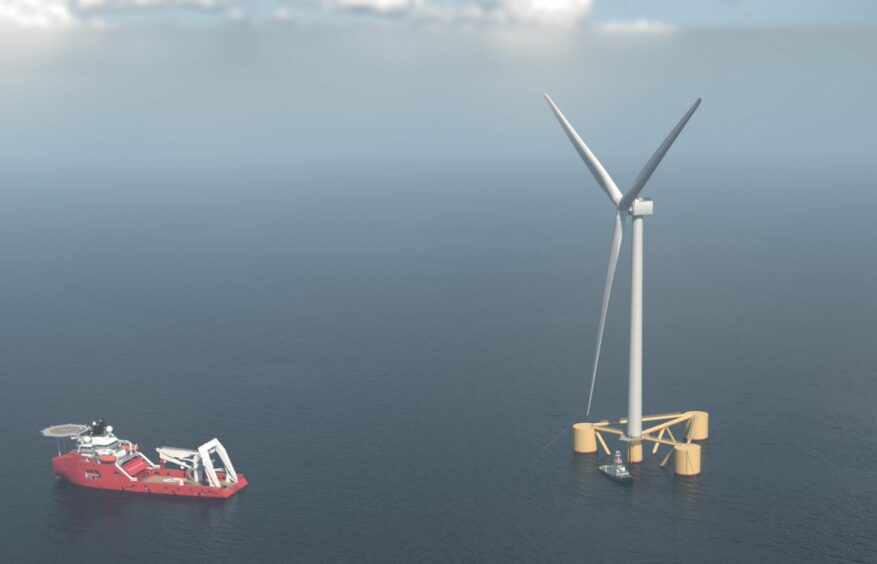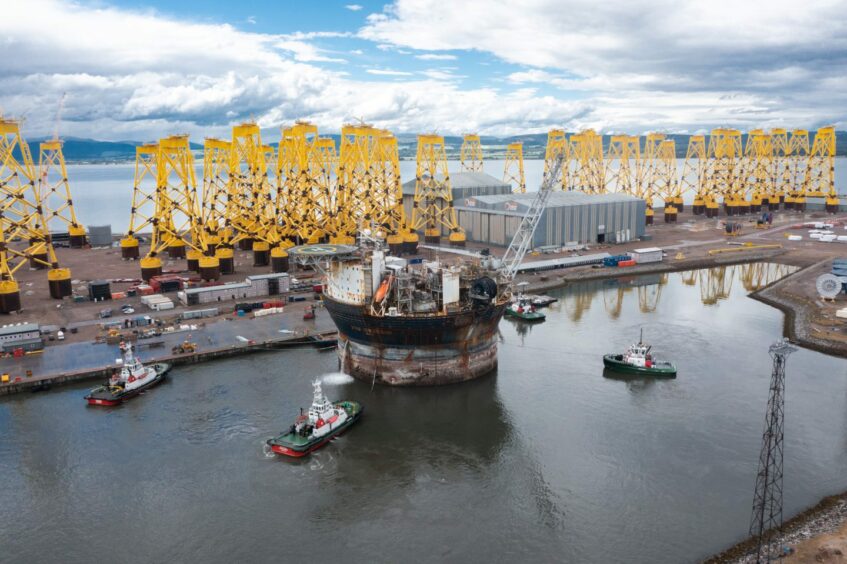
Key papers for the development of the Avalon field are to be lodged at any moment, the operator has confirmed.
It is ‘all systems go’ for Ping Petroleum as it makes swift progress on the development of the new Central North Sea oilfield.
Asset manager at the firm, Calum Hunter, told the Westminster Energy Forum on Friday that the field development plan and environmental statements for Avalon are “finished and ready”.
And Ping, a subsidiary of Malaysia’s Dagang NeXchange (DNeX), intends to submit them “to the regulator imminently”.
Development wells are on the slate for 2023, with “long lead on order” and engineering underway for “all aspects” of the project.
Avalon has recoverable resources of 23 million barrels of oil and is located about 95 miles off Aberdeen in the Outer Moray Firth.
Floating wind
“More excitingly for the energy transition”, Ping also has an INTOG application submitted, with the aim of powering the field using green energy, Mr Hunter confirmed.
During a webinar he said: “We have an agreement in place with our partner Cerulean Winds to evaluate and implement floating offshore wind, as part of the Avalon development.

“The electrification from floating offshore wind is projected to reduce the carbon emissions by up to 20,000 tonnes a year, which someone told me the other day is the equivalent to taking 10,000 cars off the road.
“It also gives the potential to expand and upscale floating offshore wind from the Avalon single turbine site, and providing net zero energy for neighbouring installations.”
Separate to ScotWind, the INTOG – Innovation and Targeted Oil and Gas – leasing round is open to companies wanting to build offshore winds farms specifically designed to supply power to oil and gas installations.
By electrifying assets, the industry can drastically reduce its operational emissions, a requirement of the landmark North Sea Transition Deal.
INTOG opened to applicants last month and is expected to run for two or three months.
Excalibur
Ping struck an agreement with Cerulean Winds earlier this year to power the floating production storage and offload (FPSO) vessel on Avalon using floating wind.
The FPSO in question will be the Sevan Hummingbird, which has been renamed Excalibur ahead of its deployment on the field.
Ping took delivery of the vessel, which served the Chestnut field for many years, from previous owner Teekay in July.
By reusing an existing FPSO instead of deploying new infrastructure, Ping has been able to minimise the environmental impact of Avalon.
Mr Hunter said: “We’ve purchased an FPSO for the development; a second hand, reused asset that is fit for purpose.
He added: “This took our carbon from the development phase from 180,000 tonnes, down to less than 20,000 tonnes.”
A sharp turnaround
Ping acquired a 100% stake in the Avalon field in August 2021.
A final investment decision (FID) on the project is anticipated later this year, ahead of production start-up towards the middle of the decade.
Mr Hunter said: “Because we’re reusing so much infrastructure and we’re not reinventing the wheel, we can turn this project around relatively quickly – first oil is scheduled in Q3 of 2025.”
Recommended for you


 © Supplied by Global E&C
© Supplied by Global E&C